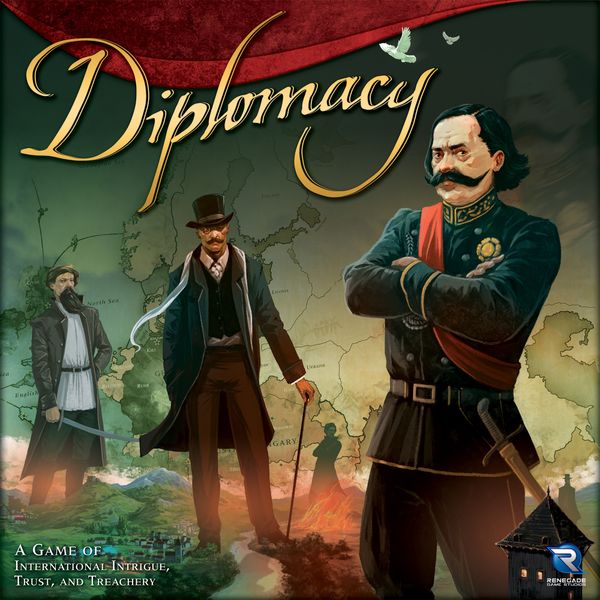Diplomacy (1959) Board Game
Diplomacy is a classic board game that was first released in 1959 by Allan B. Calhamer. It is known for its focus on negotiation and player interactions, rather than luck or dice rolling. The game is set in Europe during the early 20th century, and players take on the roles of different countries vying for power and dominance.
Game Components of Diplomacy
How To Setup Diplomacy
To set up Diplomacy, each of the 7 players randomly or by agreement takes on the role of one of the Great Powers. Each power starts with a set number of army and fleet units placed on specific supply centers on the board. The initial setup is crucial as it defines the starting positions and potential alliances from the outset.
Gameplay Mechanics and Game Objective
Player Experience
Playing Diplomacy is a deeply strategic and socially complex experience. Players must navigate intricate webs of alliances, negotiate with other players, and make tactical decisions that balance short-term gains with long-term strategies. The game requires flexibility, as plans can quickly change due to betrayals or unexpected moves by other players. The lack of random elements means that every outcome is a direct result of player actions and negotiations.
Pros
Cons
Personal Thoughts on Diplomacy
Diplomacy is for players who enjoy strategic thinking, negotiation, and social interaction. It is ideal for those who can handle the emotional intensity of forming and breaking alliances, and who appreciate the complexity of a game where every move is a result of deliberate decision-making. However, it may not be the best fit for casual gamers or those who prefer games with shorter playtimes and less interpersonal conflict. Despite its challenges, Diplomacy remains a classic and influential game that offers a unique and rewarding experience for dedicated players.
We are supported by our audience. When you purchase through links on our site, we may earn an affiliate commission, at no extra cost for you. Learn more.

